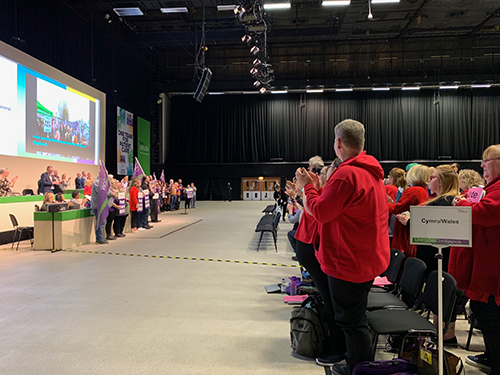Commenting on the Prime Minister’s proposals on welfare reform today (Friday), UNISON general secretary Christina McAnea said:
“The Prime Minister has promised and failed to cut NHS waiting lists.
“Worse still, his government has damaged the public services people were once able to rely upon to get better and stay healthy.
“Lengthy waits for NHS operations and treatment have left people languishing at home, too sick or injured to work. That’s a personal tragedy for them and terrible for the economy too.
“Instead of hostile rhetoric on benefits, ministers should be recruiting to fill the huge gaps in the NHS workforce. That would increase capacity and allow more patients to be seen.
“Boosting pay to persuade experienced staff to remain in the health service is key too. But it’s now more than a fortnight since the government should have announced this year’s NHS pay rise.
“Threatening to remove benefits and forcing sick and disabled people further into poverty is most definitely not the way to increase the health of our sick nation.”
Notes to editors:
– UNISON is the UK’s largest union with more than 1.3 million members providing public services in education, local government, the NHS, police service and energy. They are employed in the public, voluntary and private sectors.
Media contacts:
Liz Chinchen M: 07778 158175 E: press@unison.co.uk
Fatima Ayad M: 07508 080383 E: f.ayad@unison.co.uk
The article Prime Minister should focus on the NHS, not demonise those too sick to work first appeared on the UNISON National site.
